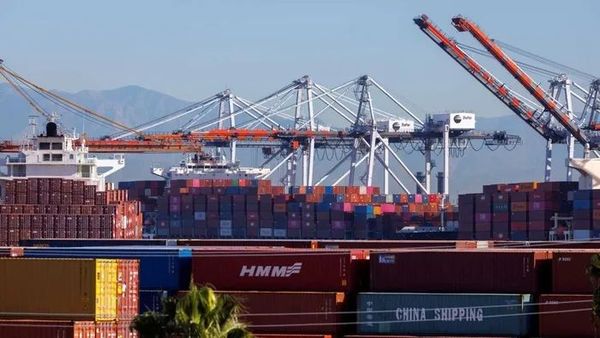Foreign media: Trump's tariff stick will indiscriminately increase costs for all pharmaceutical companies!
Recently, a survey initiated by the Biotechnology Innovation Organization (BIO) shows that the tariffs threatened by the Trump administration against Europe could have a significant impact on the biotechnology industry.
According to survey data,
-
94% of the surveyed companies stated that imposing tariffs on EU products would lead to an increase in manufacturing costs.
-
At the same time, imposing tariffs on imported products from Canada will increase costs for 82% of companies, while tariffs on imported products from China will lead to a cost increase for 70% of companies.
The survey was conducted by BIO last month and involved 42 companies, nearly half of which are large enterprises with annual revenues exceeding $1 billion.

More critically, 50% of the surveyed companies indicated that if EU tariffs are implemented, they would need to find new R&D and production partners, and about half of the companies might be forced to delay or modify their overseas regulatory submissions.
The survey further pointed out that the supply chain adjustment cycle is lengthy: 44% of enterprises expect it will take more than two years to restructure their supply chains, 36% believe it will take 1 to 2 years, and only 21% think it can be completed within 12 months. BIO CEO John Crowley warned that tariffs could "harm drug accessibility, hinder innovation, and increase unnecessary regulatory burdens." Although he supports the return of manufacturing to the U.S., he stated that the short-term impact of tariffs will cause "profound damage" to the industry.
In the face of tariff threats, some American pharmaceutical companies have accelerated their domestic布局.
At the end of March, Eli Lilly announced an investment of $27 billion to build four "super factories" in the United States, while Johnson & Johnson plans to invest $55 billion in the U.S. over the next four years to expand pharmaceutical and medical device facilities.
However, the industry generally believes that new production capacity requires 5 to 10 years to materialize, and the cost of a single factory can reach up to 2 billion US dollars, which may squeeze research and development investment.
The Trump administration plans to announce a series of new tariff measures on April 2.
Although Bloomberg reported that this announcement is not expected to include specific product tariffs opposed by the pharmaceutical and biotechnology industries, such tariffs are likely still in the works.
Trump stated on Monday, "Tariffs on pharmaceutical products will be implemented at some point." Last month, he even explicitly warned pharmaceutical executives during a meeting at the White House to bring production back to the United States.
The BIO survey results indicate that these tariff policies may, to some extent, promote the Trump administration's goal of bringing manufacturing back to the United States, but they may also run counter to the government's aim of reducing drug costs.
【Copyright and Disclaimer】The above information is collected and organized by PlastMatch. The copyright belongs to the original author. This article is reprinted for the purpose of providing more information, and it does not imply that PlastMatch endorses the views expressed in the article or guarantees its accuracy. If there are any errors in the source attribution or if your legitimate rights have been infringed, please contact us, and we will promptly correct or remove the content. If other media, websites, or individuals use the aforementioned content, they must clearly indicate the original source and origin of the work and assume legal responsibility on their own.
Most Popular
-

Key Players: The 10 Most Critical Publicly Listed Companies in Solid-State Battery Raw Materials
-

Vioneo Abandons €1.5 Billion Antwerp Project, First Commercial Green Polyolefin Plant Relocates to China
-

EU Changes ELV Regulation Again: Recycled Plastic Content Dispute and Exclusion of Bio-Based Plastics
-

Clariant's CATOFIN™ Catalyst and CLARITY™ Platform Drive Dual-Engine Performance
-

List Released! Mexico Announces 50% Tariff On 1,371 China Product Categories






